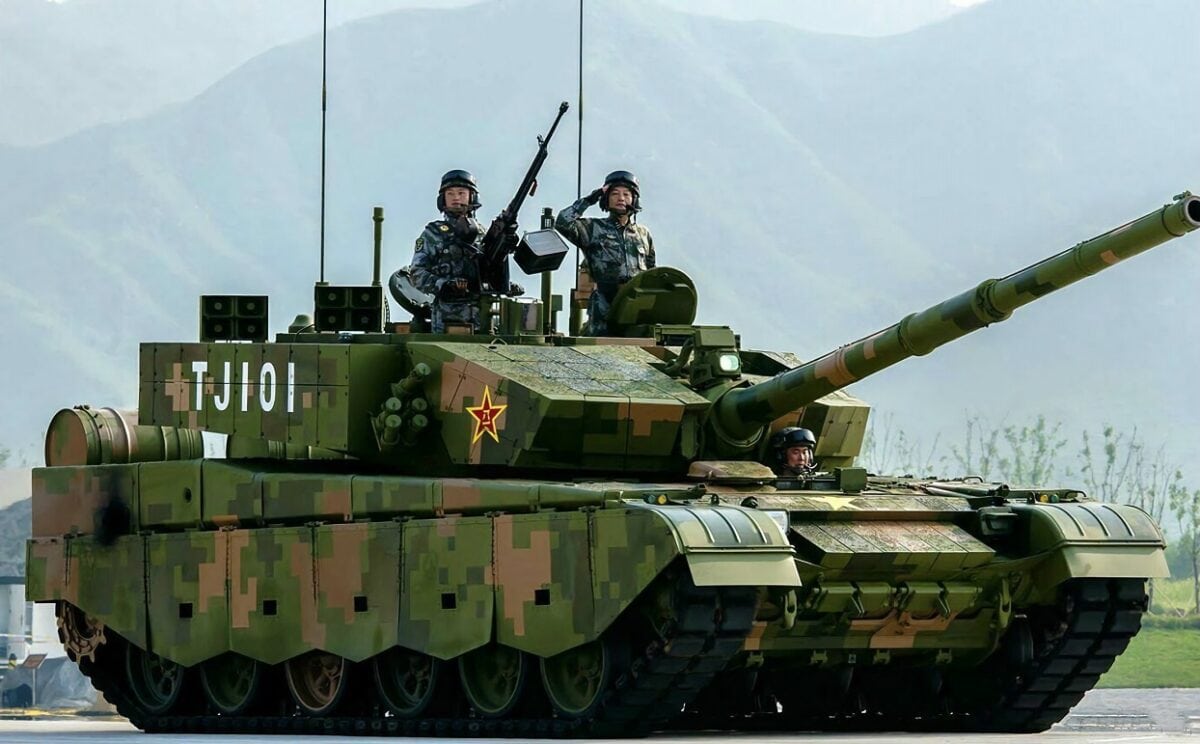Taiwan: U.S. Senators Warn China Is Watching How the U.S. Responds to Russia Invasion – Democrat and Republican senators are urging the Biden White House to do more to help both Ukraine and Taiwan, arguing that China is watching how the United States responds to Russia’s invasion on a long-term basis.
“Preempt them and label Putin’s Russia for the terrorist state they are.”@LindseyGrahamSC and @SenBlumenthal discuss the Senate’s bipartisan resolution to designate Russia as a state sponsor of terrorism over the invasion of Ukraine. @CNNSotu #CNNOSTU pic.twitter.com/R8xkooBhEL
— CNN (@CNN) August 7, 2022
Appearing on CNN’s “State of the Union” over the weekend, Democratic Senator for Connecticut Richard Blumenthal and Republican Senator for South Carolina Lindsey Graham expressed their support for House Speaker Nancy Pelosi’s recent trip to Taiwan and argued that American support for Ukraine should be tied with support for Taiwan.
Senator Graham also used the appearance to back the Taiwan Policy Act, a piece of bipartisan legislation that would help Taiwan improve its defense capabilities and deepen American ties with the country.
“Almost six months into this war, Ukraine is bloodied but still standing unbowed. NATO is bigger, not smaller,” Graham said.
“The International Criminal Court is coming after Putin and his cronies, and we’re going to strangle the Russian economy as long as they’re the largest state sponsor of terrorism. If you want to receive what [Vladimir] Putin did, try to go into Taiwan.”
The South Carolina senator added that the appropriate response for the United States is to “push back against a bully, not cower.”
In an interview with NBC’s “Meet the Press,” Democratic Senator for Maryland Chris Van Hollen also said that China has been watching Russia’s actions in Ukraine and that a Chinese invasion of Taiwan does not need to be inevitable – despite intensifying threats from the Chinese Communist Party.
WATCH: Sen. Chris Van Hollen (D-Md.) tells Chuck Todd, member of the Senate Foreign Relations Committee, the U.S. isn’t in a cold war with China “yet.”
Sen. @ChrisVanHollen: “It is important that we confront and check China.” pic.twitter.com/oC7QKE6KWz
— Meet the Press (@MeetThePress) August 7, 2022
“We need to help Taiwan make that as difficult as possible for China, and we’ve been doing that y supplying Taiwan with military assistance,” the Democratic senator said, adding that the United States must do more to “make Taiwan into the porcupine” whereby China recognizes a fight in the country as unwinnable.
The argument, it seems, is that if the United States gradually begins to reduce its support for Ukraine, and if that support begins to dwindle before Russia reaches a point where it can no longer maintain an effective military presence in the country, it indicates to China that U.S. support is not permanent. With this in mind, China’s strategy in Taiwan – should an invasion finally occur – could revolve around buying time until the United States eventually backs off and allows China and Taiwan to fight by themselves.
White House Pushes Back Over Taiwan Legislation
As the war in Ukraine rages, legislators from both sides of the aisle in Congress are working to overhaul the United States’ relationship with Taiwan. Under the bipartisan Taiwan Policy Act, the U.S. government would adopt a more aggressive approach against China.
“The Taiwan Policy Act of 2022 promotes the security of Taiwan, ensures regional stability, and deters People’s Republic of China (PRC) aggression against Taiwan. It also threatens severe sanctions against the PRC for hostile action against Taiwan,” the bill reads.
Should the legislation pass, it would create a new initiative designed to bolster the island’s defense capabilities and provide almost $4.5 billion in security assistance over the next four years. Taiwan would also be officially designated by the United States as a “Major Non-NATO Ally” and reform bureaucratic procedures with a view to supporting Taiwan’s democratically elected government.

Chinese PLA Tank. Image: Creative Commons.
The White House, however, is as opposed to the idea as it was to House Speaker Nancy Pelosi’s recent trip to the island.
Last week, White House National Security Council spokeswoman Adrienne Watson said that the legislation would “contravene” the White House’s efforts at diplomacy between China and Taiwan. It would also contradict the Biden administration’s commitment to the One China Policy.
Senator Lindsey Graham, who co-sponsored the legislation, said that the White House’s reaction to the bill and Pelosi’s Taiwan trip suggests that the president’s approach to the Taiwan issue is much too cautious.
“They’re trying to stymie it and water it down, because they seem to approach every conflict that way,” Graham said this week. The South Carolina senator made the comment in response to an apparent U-turn from National Security Council spokeswoman Adrienne Watson, who said that the White House now looks forward to “working with Congress” on the bill.
“We’re full steam ahead. We’re open-minded to constructive changes, but the goal is to be more supportive of Taiwan, not less,” Graham said.
If China is watching in Ukraine, it is also watching in Taiwan – and if the United States federal government backs off on its commitment to long-term military support for Ukraine while also rejecting legislators’ efforts to strengthen ties with Taiwan, might the Chinese Communist Party may see it as a de-facto nod of approval for an invasion of the island?
Jack Buckby is a British author, counter-extremism researcher, and journalist based in New York. Reporting on the U.K., Europe, and the U.S., he works to analyze and understand left-wing and right-wing radicalization, and reports on Western governments’ approaches to the pressing issues of today. His books and research papers explore these themes and propose pragmatic solutions to our increasingly polarized society.

